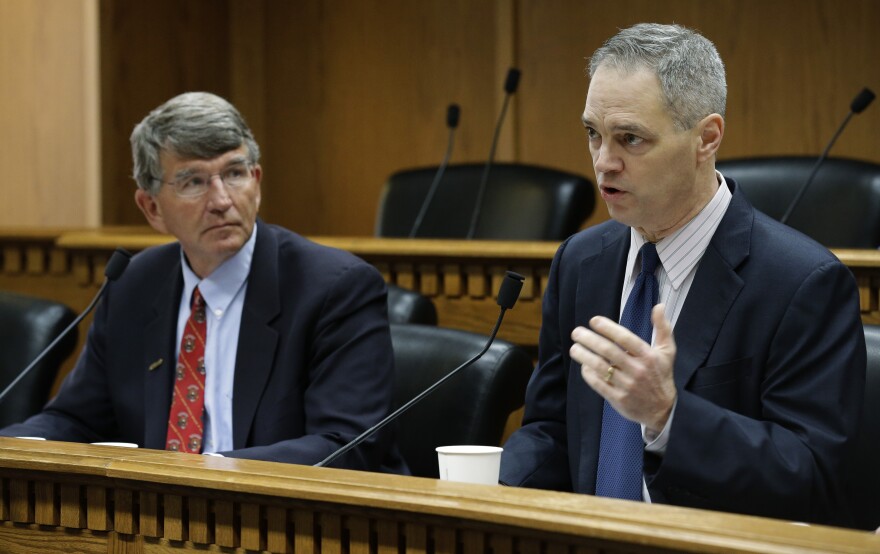Supporters of a sweeping plan to reduce K-12 class sizes in Washington public schools cheered its passage in November, hailing it as not only an opportunity for schools to hire badly-needed staff but also as a chance for the state to fix a broken revenue system.
Yet Initiative 1351 has landed with a thud in Olympia. The Senate's GOP leadership will attempt to garner the votes to suspend the class-size initiative. Top House Democrats say they can't cover its massive $2 billion price tag. And the budget Gov. Jay Inslee released Thursday only covers a portion of it.
But Superintendent of Public Instruction Randy Dorn warned last week this chilly reception won't satisfy Washington state Supreme Court justices, who've already held lawmakers in contempt over school funding.
"It makes us closer to a constitutional crisis," said Dorn, the state's top elected education official, in an interview.
Dorn: The Governor's Plan Is At least $3 Billion Short
I-1351 is the linchpin of a broader argument Dorn makes about Inslee's proposal to funnel an additional $1.3 billion into K-12 education in the next two-year budget, meeting the court's McCleary school funding mandate a year early, according to the governor.
Inslee's plan includes $448 million to cut K-3 class sizes as the McCleary case explicitly prescribes.
But Dorn says Inslee is at least $3 billion short. He says the education overhaul lawmakers sketched out in 2010 envisioned reducing class sizes across all grades by 2018, and if McCleary doesn't bind lawmakers to cut class sizes in all grades, then I-1351 certainly does.
Dorn believes lawmakers must approve at least $4.5 billion in new education spending not only to reduce class sizes, but to address another key piece that is explicitly part of McCleary: relieving some of school districts' burden for generating funding through local property tax levies.
Though the court has already held the state in contempt as part of its McCleary decision, it has reserved the right to hand down a punishment should lawmakers pass a budget that doesn't meet their expectations in the upcoming session.
'Is A $4-Plus Billion Budget Doable?'
Dorn's McCleary cost figures have often come in higher than estimates from legislative staff or the state's budget office.
An Inslee spokesman said the governor's office disagreed with Dorn's assertion, saying Inslee must offer a workable plan.
"Is it doable to do a $4-plus billion budget? I don't know. I think that's tough," said spokesman David Postman. "We have to come up with something we can get passed."
Inslee has said publicly he's not giving up on reducing K-12 class sizes altogether.
"We've made this very substantial first step. We focused first on the early grades, and I think that made some sense," the governor said last week. "We're going to continue our effort to reduce class sizes as much as we can within the bounds of the financial capabilities of the state of Washington. The voters voted on it. I do not support repealing it."
Could I-1351 Be Repealed?
Any move to repeal, suspend or modify I-1351 would require a two-thirds majority vote of the legislature. Senate Republicans, who hold a one-seat majority in that chamber, said they're trying to muster the votes to suspend it.
But House Appropriations Committee Chair Ross Hunter, D-Medina, who didn't support I-1351 during the campaign because he didn't know how to pay for it, said members of his caucus will have a hard time voting to repeal it. Many of them come from districts where I-1351 took 60 percent of the vote in November.
A two-thirds majority "just doesn't exist today," Hunter said. "Are we going to have to get there? At some point. We're going to have to make some change to it. I don't know exactly what that change is going to be."
The class size initiative would cost more than $4.7 billion over four years if fully-funded.







